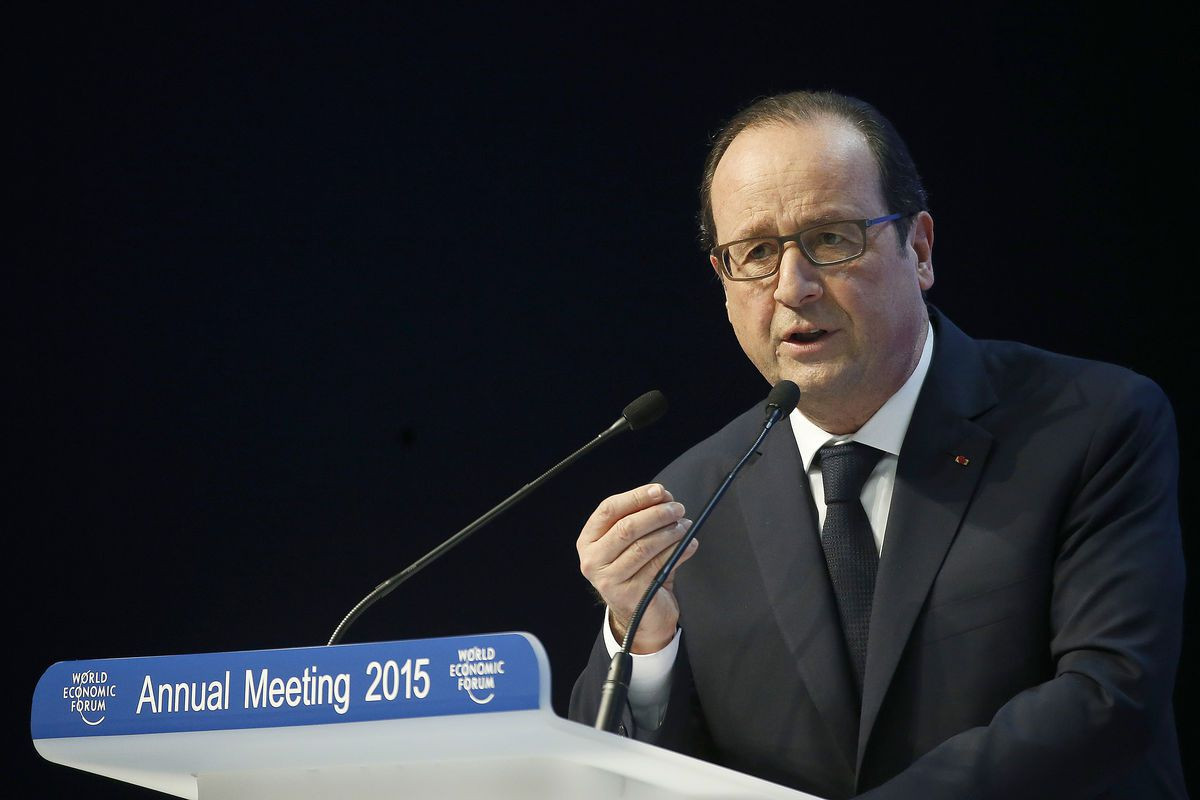French local elections: Pressure on President Francois Hollande
(Baonghean) - The second round of provincial council elections held last weekend in France ended with a resounding victory for the right wing and a heavy defeat for the ruling party. This result showed the message from French voters that they are frustrated with the current ruling party's policies. This will certainly put more pressure on incumbent President Francois Hollande, and also outline the political competitions in France in the next 2 years.
 |
| French President Francois Hollande. Photo Bloomberg |
Victory for the opposition party
Although not as important as the presidential election or a general election, the recent provincial council election in France still attracts the attention of both French and European public opinion because it reflects the balance of power and the current advantages of the parties in the country's political arena. The two rounds of voting on March 22 and March 29 will "renew" the leadership of the 101 provincial councils of France. As predicted, the preliminary vote count results as of 1:00 a.m. this morning (local time) in the second round showed that the center-right faction, consisting of two parties, the Union for a Popular Movement (UMP) and the Democratic-Independent Union (UDI), won overwhelmingly, taking control of 65 to 71 out of 101 provinces of France. The left, represented by the ruling Socialist Party (PS), suffered a heavy defeat, losing nearly half of the provinces it held, which means it now has between 28 and 35 provinces compared to the previous 61. The far-right National Front (FN) did not win any provincial leadership, but many of its candidates made it to the second round and support for its views is increasing in many French localities.
This result partly reflects the advantage of the parties in the 2017 French presidential election. The victory of the Alliance for a Popular Movement in this election will help consolidate the leadership position of former President Nicolas Sarkozy, who is facing fierce competition within the party. With the results of this election, Mr. Sarkozy will be able to quickly impose his newly proposed right-wing policies and consolidate his role as the number 1 candidate of the right wing in the internal election to choose a candidate for the 2017 French presidential election.
Meanwhile, the rise of the far-right National Front (FN) in this election is also a sign of a major change in French political life in the coming time. The FN, with its xenophobic, anti-immigration ideology and opposition to the integration process with the European Union, has put forward action programs that meet the practical interests of the people, such as tax exemptions, security assurances, infrastructure construction and job creation. Current Prime Minister Manuel Valls has warned that the high support rate for the National Front is a challenge, even a threat to France, and that party leader Marine Le Pen could win the 2017 presidential election.
That is for the parties that are in a “winning” position, but of course for the ruling party that just suffered defeat in the recent election, there will certainly be many things to say. First of all, it warns of the “disadvantage” of this party in the “race” to the Elysee Palace in the next 2 years. In the immediate future, the defeat of the ruling party may put the government of President Francois Hollande in a more difficult position in implementing the liberal reforms it is pursuing, which have encountered a lot of opposition in Parliament.
Why did the ruling party fail?
The question is why did the ruling party “go downhill” like that? French Prime Minister Manuel Valls admitted in a television interview last night that the reason for the defeat was the division within the party. In the first round, the far-left parties and the Green Party - the PS's traditional alliance, refused to support the Socialist government because they believed that the government pursued a liberal economic policy, increasingly close to the right-wing policy.
However, from an objective perspective, the voters' loss of confidence in the current ruling party can be explained by another very important aspect: France's "catastrophic economic situation". Indeed, France has had to face the worst crisis since World War II, with the unemployment rate over the past three years approaching an absolute record. For many months, the French press has talked a lot about a "punitive vote" by voters due to the poor performance after three years in power of President François Hollande.
The Socialist Party has been severely discredited for failing to deliver on its promises to pull the economy out of recession and slow the rise in unemployment. Rating agency Standard & Poor's (S&P) recently downgraded France's credit rating, criticizing President Hollande's tax policies and structural reforms. The news from S&P comes just weeks after the French president was "attacked" by strikes by farmers in Brittany and professional footballers over the high tax policy, which has made France one of the countries with the highest taxes in the West.
In the context of the economy showing no signs of improvement, the security situation has not improved much, which is also the reason why French voters are increasingly frustrated and turning to support the far-right movement. After the shootings in Paris in early January, the ruling Socialist Party seems to have lost its strong points in the eyes of French voters.
French President François Hollande had previously hinted that, even in the event of defeat, he would not change course and Prime Minister Manuel Valls would continue to run the government. However, with the results of the recent election, the pressure on President Hollande and his ruling party is increasing. Observers believe that the current French government will certainly have to carry out policy reforms if it does not want the reputation of the Socialist Party to "slip further", especially when the French presidential election is getting closer.
Thanh Huyen






